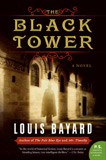Summary | Excerpt | Reading Guide | Reviews | Beyond the Book | Readalikes | Genres & Themes | Author Bio

Chapter One
The Beggar at the Corner
I'm a man of a certain age - old enough to have been every kind of fool - and I find to my surprise that the only counsel I have to pass on is this: Never let your name be found in a dead man's trousers.
Name, yes. Mine is Hector Carpentier. These days, Professor Carpentier, of the École de Médecine. My specialty is venereology, which is a reliable source of amusement for my students. "Come with us," they say. "Carpentier's going to tell all about the second stage of syphilis. You'll never screw again."
I live on the Rue du Helder, with an orange tabby named Baptiste. My parents are dead, I have no brother or sister and haven't yet been blessed with children. In short, I'm the only family I've got, and at certain intervals of calm, my mind drifts toward those people, not strictly related, who took on all the trappings, all the meaning of family - for a time, anyway. If you were to pin me down, for instance, I'd have to say I recall the lads I went to medical school with better than I recall my own father. And Mother ... well, she's present enough after all these years, but from some angles, she's not quite as real as Charles. Who was perhaps not real at all but who was, for a time, like family.
I think about him every time I see a penta. One glance is all it takes, and I'm standing once more in the Luxembourg Gardens, somewhere in May. I'm watching a pretty girl pass (the angle of her parasol, yes, the butter brightness of her gloves), and Charles is brooding over flowers. He is always brooding over flowers. This time, though, he actually plucks one and holds it up to me: an Egyptian star cluster.
Five arms, hence its name. Smaller than a whisper. Imagine a starfish dragged from the ocean bottom and ... never mind, I can't do it justice. And, really, it's not so remarkable, but sitting there in the cup of his hand, it lays some claim on me, and so does everything else: the Scottish terrier snoring on a bench; the swan cleaning its rump feathers in the fountain; the moss-blackened statue of Leonidas. I am the measure of those things and they of me, and we are all - sufficient, I suppose.
Of course, nothing about our situation has shifted. We are still marked men, he and I. But at this moment, I can imagine a sliver of grace - the possibility, I mean, that we might be marked for other things. And all because of this silly flower, which on any other day, I would have stepped on like so much carpet.
He's been on my mind of late, because just last week, I received a letter from the Duchesse d'Angoulême. (She is staying at Count Coronini's estate in Slovenia.) The envelope was girt round with stamps, and the letter, written in her usual shy hand, was mostly an essay on rain, sealed off by prayers. I found it comforting. Word has it that the Duchess is penning her memoirs, but I don't believe it. No woman has clutched her own life more closely to her bosom. She'll hold it there, I expect, until the coroner assures her she's dead.
Which may be a long time coming. God's funny that way. The more his servants pine for his presence - and make no mistake, the Duchess does - the longer he keeps them shackled to the old mortal coil. No, it's the blasphemers he's aching to get his hands on. Take Monsieur Robespierre. At the very height of the Terror, Robespierre decided that the name "God" had too much of an ancien régime color to it. In his capacity as head of the Committee of Public Safety, he declared that God would henceforward be known as the Supreme Being. There was some kind of festival, I believe, to celebrate God's promotion. A parade, maybe. I was only two.
A few months later, with half his jaw shot off, groaning toward the scaffold, was Robespierre already composing apologies? We'll never know. There was no time for memoirs.
The foregoing is excerpted from The Black Tower by Louis Bayard. All rights reserved. No part of this book may be used or reproduced without written permission from HarperCollins Publishers, 10 East 53rd Street, New York, NY 10022
Your guide toexceptional books
BookBrowse seeks out and recommends the best in contemporary fiction and nonfiction—books that not only engage and entertain but also deepen our understanding of ourselves and the world around us.